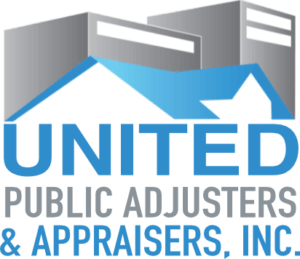
What Does Local Law 55 Mean For Me?
Do you, or a family member, suffer from asthma? Wish those symptoms, and those symptom-causing culprits, would just go away? Praying that some sort of law would be enacted that would fight indoor health hazards head-on? Breathe easy New Yorkers — especially those who are affected by indoor allergens — your prayers have been answered!
What Is Local Law 55?
In simple terms, this is a law that went into effect on January 19, 2018, that makes it mandatory for property owners of multiple-dwelling buildings to keep indoor health hazards at bay. This means property owners who fall into this category must investigate and remove asthma triggers such as mold, mildew, cockroaches, mice, rats, and any other potential sources.
What NYC Landlords Must Do:
Any landlord within the confines of New York City who operate buildings with three or more apartments, or a building of any size with a tenant who has asthma, must take the following steps to provide adequate and proper living environments for tenants:
- Inspect Apartments & Common Areas: for any potential pest or rodent infestation along with mold or any other condition listed above that might lead to hazardous living conditions. These inspections must be completed at least once a year, or as often as deemed necessary (this includes responding to all tenant complaints or requests for inspection).
- Provide Notice: to prospective and current tenants along with the Local Law 55 fact sheet at the time of any new lease or renewal. This notice states the landlord or property owner will remediate mold, pests and any other underlying conditions that foster mold or mildew growth or that attract pests.
- Exercise Integrated Pest Management (IPM): practices to control, remove and prevent pests, rodent infestations, and any other building-related issues that cause mold growth or that are related to pest problems. This includes, but is not limited to, removing nests and cleaning waste and other debris left behind by pests using a HEPA vacuum, repairing holes, gaps or cracks in walls, ceilings or floors (including moldings and around pipes, conduits, and cabinets), removing potential pest water sources which includes repairing drains and fixing leaks, and using pesticides if necessary to correct violations. Indoor mold and mildew hazards are commonly found on kitchen and bathroom surfaces, within heating and air conditioning systems as well as ventilation equipment and building cavities.
- Remove Mold: and mildew in a safe and effective manner — this includes removing standing water and fixing leaks. Upon doing so, landlords will move furniture safely out of the way or cover it in plastic for protection, limit the spread of dust (seal off openings, doorways and ventilation ducts), clean moldy areas with soap or mild detergent and water, and throw away all cleaning-related waste in heavy-duty plastic bags. If the area is equal to, or greater than, 10 square feet, the landlord must use a New York State Department of Labor-licensed mold assessor and remediator.
What Tenants Should Do:
In order to promote a healthy and safe indoor living environment, tenants should always keep living spaces clean and dry, place food in sealed containers and keep counters and sinks clean, use garbage cans and trash receptacles with tight-fitting lids, take garbage and recycling out daily, avoid using harsh chemicals and pesticides in living confines (including cleaning products and air fresheners), and alert the landlord right away if pests, leaks or holes or cracks are located.
Mold remediation is a difficult task to undertake on your own. The process can be a lengthy one, requiring a variety of expensive experts such as mold assessors and industrial hygienists and that’s what we’re here for!
Mold Claims Public Adjusters in NYC
United Public Adjusters understands how devastating and threatening mold exposure can really be to both tenants and landlords. It can truly turn your life upside-down. We are in your corner, helping you get the coverage you deserve. Whether you’re looking to recoup insurance funds for income loss or reconstruction bills, our adjusters are experts in mold property damage insurance claims. We will stand by our guarantee to advocate on your behalf until proper compensation is recovered.
Let us help with your insurance claim during this overwhelming time. We’ll alleviate stress by recovering all insurance benefits from your insurance company and allowing you to get you back on track to normal business operations, no matter the obstacle you face. Call us today at (866) 405-4999 and we’ll review your policy, discuss the root cause of the mold damage and get you the compensation you are entitled to all while limiting business interruption.
MY FREE CONSULTATION
"*" indicates required fields
